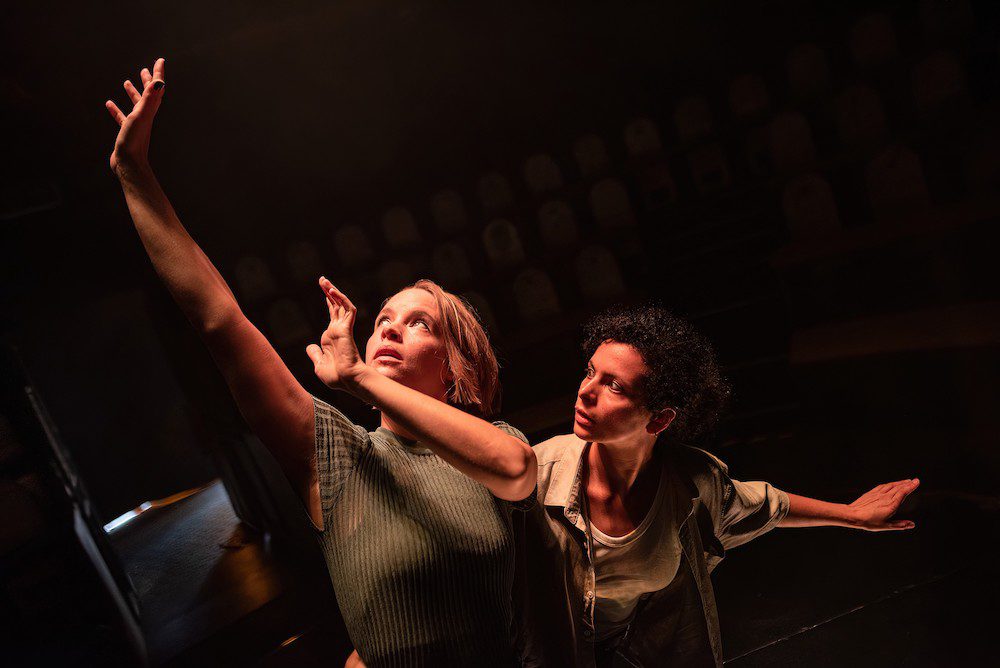In many ways, it is this that sits at the heart of SAP. While there are many vital and important themes explored, it is one lie and one giant coincidence and the interacting consequences of both that drive the story.
The central but unnamed character in the action (though in the accompanying play script she is named Daphne) is a bisexual woman working in a junior comms role at a domestic violence charity.
She proudly lives her sexuality large. We see her have a one night stand with a man she finds physically attractive – though only fleetingly interesting. She then meets a “goddess” in a lesbian bar, with whom she finds a deeper connection and establishes a lasting relationship.
Through this relationship writer Rafaella Marcus explores the pressures unique to bisexual women. The fear from their gay partners that they are just ‘playing at’ being gay. That they aren’t seen by some as ‘gay enough’. The residual fear of both partners that they aren’t enough for each other, present in most relationships, is exacerbated by this element of their sexuality.
Then comes the twist. The throwaway man we met earlier turns out not to be so easy to get rid of. And through Daphne’s insecurity about her own relationship and the coincidence that has brought him back into her life he finds room and opportunity to. torture her physically, emotionally and sexually.
SAP is a play that deals with deep dark themes. Biphobia from both inside and outside the LGBT community and the fetishisation of bisexual women by straight men. Sexual abuse. Insecurity and its consequences.
All of this is present throughout the play but is beautifully balanced with humour and a deftness of touch that makes this writing debut quite extraordinary.
The play is performed with a beautiful fluidity too. The physical movement feels at times like a dance – but one that matches perfectly the words being spoken.
Jessica Clark is excellent as Daphne – engaging and emotive in all the right places. But doing an even harder job superbly is Rebecca Banatvala who plays all the other roles. The clever nuances when she makes it clear – with a slight movement or a gentle intonation – both the similarities and differences between them add a stunning layer to the audience’s understanding of the maelstrom Daphne finds herself in.

